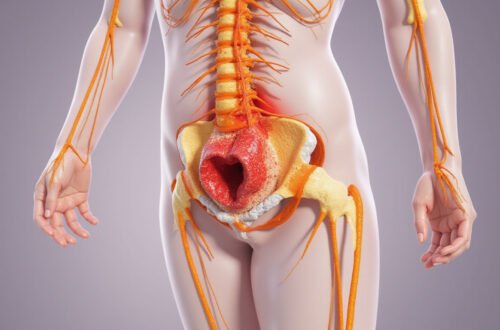Pain is an inevitable part of life for many individuals, and finding effective ways to manage it can feel daunting.
Enter holistic pain management—a comprehensive approach that addresses not just the physical symptoms of pain, but also the emotional and mental factors that contribute to it.
In this article, we will explore the various facets of holistic pain management, including its benefits, the mind-body connection, natural remedies, the impact of nutrition, integrative techniques, and how to create a personalized pain management plan.
Whether you’re dealing with chronic pain or seeking preventive measures, understanding holistic pain management can empower you to take control of your health and improve your overall well-being.
Your Sciatica Pain-Free Future Starts Here – Click to Learn More!
Key Takeaways
- Holistic pain management considers multiple aspects of well-being, including physical, mental, and emotional health.
- The mind-body connection plays a significant role in how pain is perceived and managed.
- Utilizing natural remedies and therapies can offer effective alternatives for pain relief.
- Nutrition and lifestyle changes are crucial components in a holistic approach to managing pain.
- Creating a personalized plan that combines both conventional and alternative treatments is essential for optimal pain management.
Understanding Holistic Pain Management and Its Benefits
Holistic pain management is an integrative approach that seeks to address the root causes of pain rather than merely alleviating symptoms.
This comprehensive method combines various therapeutic techniques—including physical therapies, counseling, nutrition, and alternative therapies like acupuncture and yoga—to promote overall well-being.
One of the fundamental benefits of holistic pain management is its focus on the whole person, considering emotional, social, and lifestyle factors that contribute to pain.
By adopting this approach, individuals often experience enhanced quality of life, reduced reliance on medications, and improved mental health, making it a viable option for anyone looking to manage chronic pain effectively.
Whether you are dealing with arthritis, back pain, or migraines, embracing holistic pain management can lead to sustaining relief and empowerment over your health journey.
The Mind-Body Connection: How Mental Health Affects Pain
The mind-body connection plays a critical role in understanding how mental health affects pain, making holistic pain management an essential approach for many individuals.
When we experience stress, anxiety, or depression, our bodies often respond with intensified feelings of pain, creating a cyclical relationship between mental and physical health.
For instance, conditions like fibromyalgia or chronic back pain can be exacerbated by psychological factors, highlighting the importance of addressing mental health alongside physical symptoms.
Holistic pain management involves integrating various techniques such as mindfulness, meditation, and cognitive behavioral therapy, which can not only alleviate physical discomfort but also promote emotional well-being.
By recognizing and treating the psychological aspects of pain, individuals can achieve a more balanced, comprehensive approach to their pain management, leading to improved overall quality of life.
‘The body heals with play, the mind heals with laughter, and the spirit heals with joy.’ – Proverb
Natural Remedies and Therapies in Holistic Pain Management
In recent years, the approach to wellness has shifted significantly, with many individuals seeking out holistic pain management techniques that address not just physical symptoms, but also emotional and spiritual well-being.
Natural remedies and therapies play an essential role in this comprehensive strategy, offering an array of options to help alleviate discomfort without relying solely on pharmaceutical solutions.
Practices such as acupuncture, herbal medicine, and mindfulness meditation can enhance body function and promote relaxation, thereby reducing pain.
Additionally, integrating diet and nutrition—such as anti-inflammatory foods—can significantly impact pain levels.
By adopting a holistic pain management approach, individuals can empower themselves to explore various pathways to healing, making informed choices that reflect their unique health needs.
Your Sciatica Pain-Free Future Starts Here – Click to Learn More!
The Role of Nutrition and Lifestyle Changes
Holistic pain management is an approach that considers the whole person, rather than just the symptoms of pain.
It emphasizes the importance of nutrition and lifestyle changes as essential components in treating and managing chronic pain.
A diet rich in anti-inflammatory foods, such as fruits, vegetables, whole grains, and omega-3 fatty acids, can play a crucial role in alleviating pain.
Additionally, regular physical activity, adequate sleep, and stress-reduction techniques, like meditation or yoga, contribute significantly to improving overall well-being.
These lifestyle changes not only help in mitigating pain but also empower individuals to take charge of their health, fostering a sense of control and promoting a better quality of life.
By integrating nutrition and lifestyle adjustments into a comprehensive treatment plan, individuals experiencing chronic pain can achieve more effective and sustainable relief.
Integrative Techniques: Combining Conventional and Alternative Treatments
Holistic pain management is an evolving field that seeks to bridge the gap between conventional and alternative treatments, creating a comprehensive approach to pain relief.
By integrating techniques such as physical therapy, acupuncture, and mindfulness meditation with traditional medicine, patients can achieve a more balanced and effective pain management strategy.
This method not only addresses the physical symptoms of pain but also considers emotional and psychological factors, promoting overall well-being.
For instance, while a physician might prescribe medication to manage pain, incorporating therapies like yoga or nutritional changes can enhance healing and improve the quality of life.
As more medical professionals recognize the benefits of holistic pain management, patients are encouraged to explore these integrative options, resulting in a more personalized and effective pain relief plan.
FAQs
What is holistic pain management?
Holistic pain management is an approach that considers the whole person—body, mind, and spirit—when addressing pain.
It integrates conventional medical treatments with alternative therapies to promote overall well-being and effective pain relief.
How does mental health influence pain management?
Mental health significantly impacts how we perceive and manage pain.
Stress, anxiety, and depression can exacerbate feelings of pain, while effective mental health care, such as therapy or mindfulness practices, can help reduce pain and improve quality of life.
What types of natural remedies can be used in holistic pain management?
Natural remedies for holistic pain management include herbal supplements, acupuncture, massage therapy, essential oils, and mindfulness practices such as yoga and meditation.
These therapies aim to alleviate pain while promoting relaxation and healing.
What role does nutrition play in pain relief?
Nutrition plays a critical role in pain management.
A balanced diet rich in anti-inflammatory foods, such as fruits, vegetables, whole grains, and healthy fats, can help reduce inflammation and support overall health, potentially relieving pain.
How can I create a personalized holistic pain management plan?
To create a personalized holistic pain management plan, consider your unique pain triggers, lifestyle, and preferences.
Consult with healthcare professionals who specialize in holistic approaches, and incorporate a mixture of therapies such as physical therapy, nutritional guidance, and mental health support that suit your needs.






